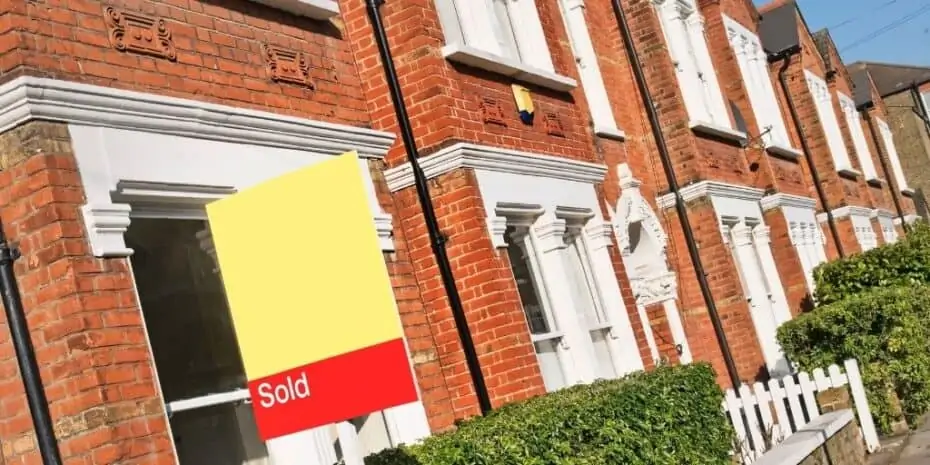
REtipster does not provide tax, investment, or financial advice. Always seek the help of a licensed financial professional before taking action.
Behind on your mortgage or taxes?
It’s not easy living with the threat of losing your home. And the closer you get to the foreclosure date, the fewer your options for keeping your home.
Even so, the short answer to “When is it too late to stop foreclosure?” is “once the auction starts.” Which means you’ll have plenty of notice and time to act.
Mortgage Foreclosures vs. Tax Lien Foreclosures
Before going any further, it’s worth noting the differences between mortgage foreclosures and tax lien foreclosures.
In a mortgage foreclosure, the lender can put your home up at auction to recover the money they lent you when you default on your mortgage payments. The process takes a bare minimum of around six months from the first missed payment to the auction (more on that process shortly).
On the other hand, in a tax lien foreclosure—when you fail to pay your property taxes—your local government can also take steps to forcibly collect their bill. In tax deed states, they auction the house similar to a foreclosure auction. In tax lien certificate states, they auction off the lien against your home, and the new buyer must then collect on that lien. Eventually, they can put your home up at auction.
The property tax foreclosure process takes longer than the mortgage foreclosure process, measured in years rather than months.
Overview of the Mortgage Foreclosure Process
The foreclosure process works differently in each state. Some states follow a judicial foreclosure process that requires court approval, and others a non-judicial foreclosure process. Check this map below of judicial versus non-judicial foreclosure states to see how your state regulates foreclosures:
In any case, the overall timeline looks like this:
- 30 days late: After one month of missed payments, the lender must try to call you to discuss your options.
- 45 days late: The lender sends you written notice about loss mitigation options.
- 60 days late: The lender informs you that you have another 30-day grace period to speak with a housing counselor.
- 90 days late: Ninety days after the initial payment default, the lender typically sends a notice of their intention to foreclose.
- 120 days late: After 120 days, they send an official notice of foreclosure and file in court if necessary in that state. The Dodd-Frank Act establishes a nationwide minimum of 120 days after default before lenders can officially start the process.
The lender then starts publicly advertising the foreclosure auction. At this point, expect to receive a flood of letters, and possibly even emails, phone calls, and text messages. These are from people offering their services, from bankruptcy attorneys to real estate investors offering to buy your home.
At the foreclosure auction, lenders typically start the bidding at the total amount you owe them, including back payments and their legal and marketing fees to foreclose on you. Auctions usually take place on the courthouse steps, not your home, so bidders don’t know your home’s condition. In most cases, no one bids at the auction, and the lender starts the legal process to take ownership of your home.
That usually takes another few months at least. Once completed, they must then file for eviction (if you still live in the property) to take possession of it.
When Is It Too Late to Stop Foreclosure?
In most cases, you can stop the foreclosure process right up until the auction itself.
That said, your options start dwindling as the auction approaches. For example, it takes time to sell a property, as the buyer arranges financing, inspects the property, does a title search, schedules a closing with a notary, and so forth. Typical real estate transactions take 30 to 60 days to close, and even expedited settlements with investors usually take at least a week.
As a general rule, though, as long as you come up with the money you owe in arrears before the auction, the foreclosure process stops, and you return to your standard monthly payment.
How to Stop Foreclosure at the Last Minute
While not an exhaustive list, here are a few of the most common ways you can stop foreclosure as the auction approaches.
1. Sell the Property
You’ll get no shortage of offers to buy your home from real estate investors. Many offer cash sales and quick settlements.
However, it still takes a minimum of 7 to 10 days for most to close and often longer. And remember that you keep accruing back interest and late fees with every month that goes by, and once your lender formally starts eviction proceedings, you quickly rack up thousands of dollars in marketing and legal fees.
If you’re thinking about selling, pursue this option sooner rather than later.
Note that selling your home doesn’t have to mean moving out. You can negotiate a lease option agreement with buyers, where you get the right to stay in the home as a renter, perhaps with the option to repurchase the property. But in most cases, you’re better off selling outright; if you can’t afford your original monthly mortgage payment, you likely won’t be able to afford the rent payment to the buyer.
Beware that selling your home quickly only works if you have equity. Otherwise, you’d need lender approval for a short sale, which you’d need to arrange early after your default. Once a lender files for foreclosure, that door closes.
Once you get down to the wire, look into these ways to sell your property in seven days.
2. Refinance
If you have equity in the property, you can potentially refinance your mortgage. But again, the longer you wait, the more the back interest, late fees, legal fees, and auction marketing fees add up.
Even with equity in your home, refinancing comes with several challenges. Defaulting on your original loan hurts your credit, deterring lenders from working with you. Plus, there’s little reason to believe your new monthly payment would be lower than your old one after having to roll in closing costs and cover your payment arrears.
3. Declare Bankruptcy
Declaring bankruptcy offers a nearly “guaranteed” way to stop foreclosure at the last minute. Homeowners can theoretically declare bankruptcy on the day of the auction and halt the foreclosure.
Unlike the two options above, you don’t need any equity in your home to do it. But it’s a drastic measure that will follow you for years to come.
Of the various types of bankruptcy, most homeowners in foreclosure prefer a Chapter 13 bankruptcy because it lets them negotiate a payment plan and stay in their home. But it stays on your credit report for seven years and will make it difficult for you to borrow money during that time. That includes not just future mortgages, but also auto loans, credit cards, and other types of debt.
Final Thoughts
When you first default on your mortgage, call up your lender immediately and discuss loss mitigation options. They could include loan modifications such as lower interest rates or moving back payments to the end of your loan term, or a short sale if you’re upside-down on your loan.
If you plan to sell, do it sooner rather than later. Once the lender files for foreclosure, it becomes public record, and prospective buyers know you’re a distressed seller. They’ll reduce their offers because they know you have little room to negotiate.
Early in my career, I worked for a real estate investor who specialized in buying pre-foreclosures. I spoke with hundreds of borrowers in foreclosure, and nearly all of them wanted to stay in their property at nearly any cost. Unfortunately, for most of them, it was the wrong move: they just couldn’t afford the home but didn’t want to acknowledge it. So they ended up taking any offer that let them stay in the house and usually ended up losing all their equity later.
It may sting now, but if you have any doubts about your ability to consistently pay your mortgage on time, sell it for top dollar while you can and move into a more affordable home.
What options are you considering to prevent foreclosure?

















